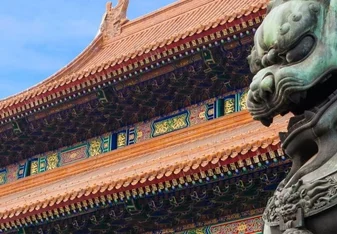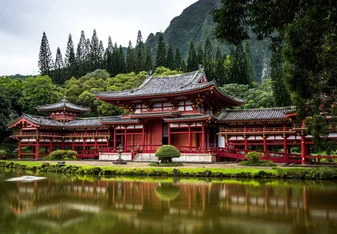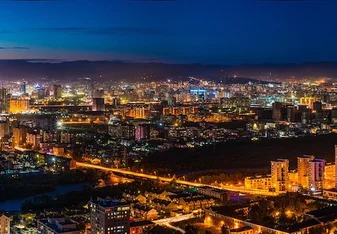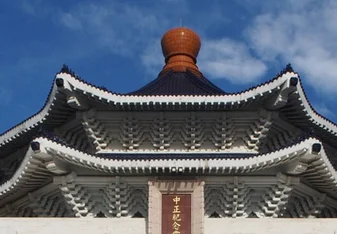Study Abroad Programs in South Korea
About
In the past few decades, South Korea has shot onto the global stage with world-leading industries in tech, fashion, beauty, and more. The world now listens to K-Pop, relies on Korean gadgets, eats kimchi, and swears by Korean skincare. It’s no wonder, then, that so many students are turning their thoughts towards the skyscrapers of Seoul and Busan.
But by studying abroad in South Korea, you'll see much more than its neon-lit cities and its trendsetting influence. It’s a country with a long, rich history, seen in its shrines, temples, and local markets. It’s a place of breathtaking natural beauty, with soaring mountain ranges hovering just outside of every city. It’s also home to a fun-loving population that truly enjoys what their country has to offer.
South Korea welcomes international students with open arms. Universities offer reasonable tuition fees and plenty of scholarships, which has created vibrant and diverse student communities in all of the country’s major cities.
Where to Go
Most people have only ever heard of Seoul, but there are plenty of other exciting and beautiful cities to consider when studying abroad in South Korea.
Seoul
Seoul is the perfect destination for students looking to study in a modern metropolitan city rich with historical landmarks and surrounded by natural wonders. The capital of South Korea provides a great contrast between old and new worlds. This city, which bursts with vibrant culture and rich history, is the perfect setting for a life-changing study abroad experience.
A leader in global business, Seoul is one of the top ten financial and commercial centers in the world. The city also offers a plethora of museums and religious monuments for eager students to explore. With so many unique offerings, Seoul is suitable for students hoping to pursue a vast array of different disciplines. Seoul’s universities, the best in the country, offer high-caliber courses in art, science, East Asian studies, political science, and many other fields.
Students studying in Seoul will also enjoy the city’s vibrant culture and social activities, including music festivals, taekwondo competitions (Korea’s national sport) and the world’s largest indoor theme park. Nature also abounds for students looking to escape the metropolis. The city is filled with parks and streams and borders the Han River.
Busan
Korea’s second-largest city is a colorful port town and a thriving cultural hub. You’ll find great city beaches, cool boutiques, countless bars and restaurants, and the best fish markets in the country. Busan is nestled in the mountains, which also makes it a paradise for hiking enthusiasts. It is home to several universities and lively student hubs, making it a great place to study abroad in South Korea.
Daegu
Unlike constantly changing Seoul, Daegu still has very strong links to its traditions, as seen in the city's love of oriental medicine and traditional markets. A large student population keeps the place feeling youthful and modern, with a lovely low-key vibe. It is especially popular with exchange students and ex-pats, making it a very easy place to settle into for foreigners.
Daejeon
If you want to learn about a scientific subject in South Korea, look for study abroad programs in Daejeon. It's home to KAIST, which is commonly called the “MIT of South Korea,” as well as several other prestigious scientific institutions. It is a forward-thinking, innovation-driven city, and it’s also a suburb of Seoul, so the buzz of the big city is never too far away.
Planning Your Trip
South Korea is a popular study abroad destination, so the infrastructure to help international students settle in is already in place. Students can count on support from their university as well as from the large foreign student populations in the big cities.
How to Choose a Study Abroad Program in South Korea
One way to choose a Korean study abroad program is to simply ask yourself what you look for in a city. If you want non-stop energy (or you’re really, really into K-Pop), Seoul is the obvious choice for you. If you want to enjoy South Korea’s more traditional side, pick student-friendly Daegu. Nature lovers will be satisfied with living and learning in just about any major city in South Korea -- a mountain is never too far away.
You could also choose the best university for your chosen area of study. For instance, the Korea Advanced Institute of Science and Technology (KAIST) in Daejeon is the best place for science students, while Seoul has the best business schools.
Housing
Many universities in South Korea have on-campus dorms, and international students often get priority. If you can’t get a room in one of these, other options include:
- Dorm-style buildings with shared facilities and private rooms (Goshiwon) - $200-$400 a month, utilities included
- Studio apartment in Seoul - from $800 a month, plus utilities ($100 minimum)
- “Officetel” apartment (modern office + hotel city building) - from $500, plus utilities ($100 minimum)
- Shared housing in an apartment or house - $300 - $500 a month depending on location, utilities are sometimes included
42Share is a great website for finding house shares (as well as some studio apartments) in Seoul.
Visas
International students require a D-2 student visa to study in South Korea. This can be arranged at your closest Korean Embassy or Consulate, once you have received your admission letter from the university. If you need any support during the process, your university should be able to help.
Social Life & Student Culture
South Korea has a fun and lively student culture, with plenty of drinking and eating out. Universities have many student associations, which are very much focused on getting their members to socialize.
Korean culture is very hierarchical: elders are always to be respected. At university, this manifests itself in the relationship between sunbaes (upperclassmen) and hubaes (underclassmen). Subaes treat their hubaes to meals and nights out, taking on a mentorship role of sorts, and you are expected to pass this on to your hubaes later on.
There are a lot of rigid customs surrounding table manners and other parts of everyday life, but as a foreigner, you will be given the benefit of the doubt as you settle in. Stay respectful and observant, and you will eventually get the hang of things.
Health & Safety
South Korea is an incredibly safe country, so only the usual precautions apply. In particular, watch out for pickpockets in central areas of big cities.
Healthcare is generally very good. The only thing to bear in mind is that English-speaking doctors can be difficult to find outside of International Clinics, where the consultation alone costs $35-70. Make sure you know what kind of care your insurance covers, and that it allows for upfront payment.
Costs & Funding
Studying abroad in South Korea is quite affordable, especially if you’re coming from the U.S. or Europe. Tuition fees and housing costs are reasonable, as are daily expenses like food.
Typical Costs to Study Abroad in South Korea
Tuition fees for South Korea programs can differ depending on whether you study abroad through direct enrollment or a program provider. Usually, direct enrollment at a university can be similar to your regular tuition rate at home. Overall, it costs an average of $4,350 per semester for public universities, $5,800 for private ones, and $6,500 for Seoul’s top universities. The cost is the same for domestic students, which is an unusually fair arrangement designed to attract international students.
Funding Options
South Korea is keen to attract international students, so there are actually quite a few scholarships available (see below).
Many students work part-time to supplement their income. You can work up to 20 hours a week on your student visa, although you may struggle to find jobs that don’t require speaking Korean.
Scholarships
The Korean government has an excellent scholarship for international students called Global Korea. This includes your airfare, full tuition fee, resettlement and living allowances, medical insurance, and language courses for one year.
Individual universities also have a range of study abroad scholarships that can apply to your time in South Korea, so have a look at your preferred institution’s website to see what’s available.
Frequently Asked Questions
-
Can you travel to South Korea this year?
Yes, while it’s important to be cautious and follow all health requirements, such as mask mandates and testing, fully vaccinated travelers are welcome to visit South Korea and study, teach, work and more in 2022-2023!
-
Why study in South Korea?
South Korea is a leader in many economies including tech, fashion, and beauty. Students can enjoy an international community, an abundance of cultural activities, and an education from some of the top universities with reasonable tuition fees. Plus, it's full of natural beauty and bustling cities waiting to be explored!
Related Content -
Where can I study abroad in South Korea?
South Korea has several large cities perfect for study abroad students like Busan, Seoul, Daegu, and Daejeon. Seoul is the capital and the largest city in South Korea, making it one of the best places to further your education overseas.
Related Content -
How much does it cost to study abroad in South Korea?
South Korean public universities generally cost about $4,350 per semester. Private universities can cost more, starting at $5,800 per semester. Some of the top institutions can cost around $6,500 per semester. These fees may also change depending on if you enroll at a university directly or through a third-party provider. In addition to tuition, you'll need to consider the costs of flights to South Korea and living expenses such as rent, groceries, utilities, and extracurricular activities.
Related Content -
How much does it cost to live in South Korea for a year?
South Korea has a low cost of living relative to the United States, making it a fantastic destination for a budget gap year. Your highest expenses will likely be housing, but teachers in South Korea will often find programs with accommodations included, or monthly housing stipends! Additionally, there are work exchanges and short-term jobs for gappers looking to lower their expenses even more.
-
Is living in South Korea expensive?
Living costs in South Korea are pretty reasonable. To give you a general idea, here are a few cost of living prices: $2.75 for a beer, $6 for a meal at a restaurant, ~$1 per trip for public transportation, and between $350 to $675 USD per month to rent an apartment (depending on if it's rural or in a city).







































